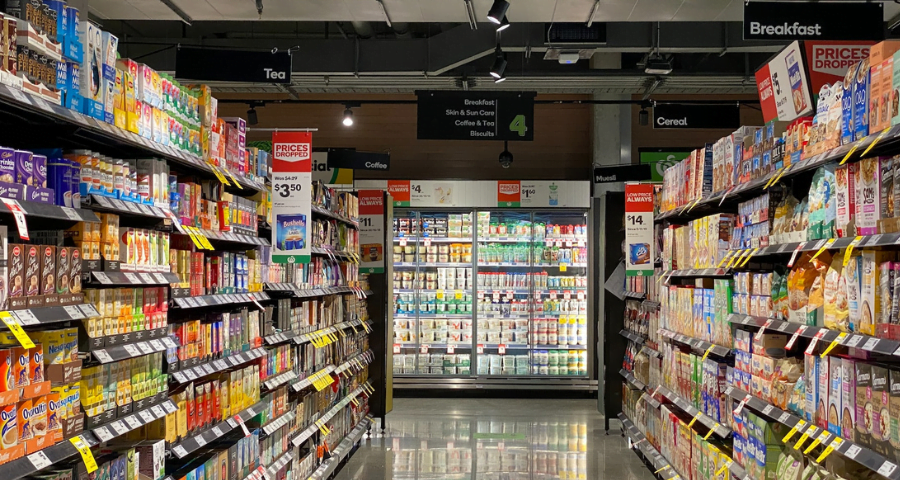The Growing Popularity of Plant-Based Alternatives
A Shift in Dietary Preferences
The demand for plant-based meat and milk alternatives has surged in recent years, driven by growing consumer awareness of health, sustainability, and animal welfare. As people seek alternatives to traditional animal products, plant-based options have emerged as a viable and nutritious choice.
Plant-based products cater to various dietary preferences, including vegan, vegetarian, and flexitarian lifestyles. These alternatives are no longer niche products; they are widely available in supermarkets and restaurants, offering consumers a convenient way to reduce their reliance on animal products.
The rise of plant-based alternatives is fueled by technological advancements and culinary innovations, which have improved taste, texture, and nutritional profiles. From soy-based milk to pea protein burgers, these products are designed to closely mimic the experience of consuming traditional meat and dairy while providing added health benefits.
The Role of Scientific Research
A comprehensive study conducted by ProVeg International evaluated the nutritional quality of plant-based products across 11 countries. The findings highlight the significant progress made in developing alternatives that rival or surpass animal-based products in terms of nutrition.
Researchers analyzed 422 plant-based meat products and 251 plant-based milk alternatives, comparing them to internationally recognized standards such as the World Health Organization’s Nutrient Profile Model (NPM) and the European Food Safety Authority’s (EFSA) nutrition claim legislation. The study’s results reveal the potential of these products to support healthier and more sustainable diets.

As scientific research continues to validate the health benefits of plant-based options, their credibility among consumers and healthcare professionals is growing. This positive reinforcement is driving the adoption of these products on a global scale.
Nutritional Benefits of Plant-Based Milk
A Healthier Alternative to Dairy
Plant-based milk alternatives have gained popularity for their ability to provide essential nutrients while reducing health risks associated with dairy consumption. According to the study, plant-based milks generally contain lower levels of total fat and saturated fat compared to cow’s milk. This makes them a heart-healthy choice for individuals seeking to reduce cholesterol levels and manage weight.
Soy milk emerged as a standout option, offering protein levels comparable to cow’s milk. Additionally, soy milk has been shown to reduce blood pressure, cholesterol levels, and inflammation. These benefits are supported even when the soy milk is sweetened, making it an appealing option for those who prefer flavored beverages.
Other plant-based milks, such as almond, oat, and rice milk, also provide nutritional benefits tailored to different needs. For instance, almond milk is low in calories, oat milk is rich in dietary fiber, and fortified plant-based milks often contain calcium and vitamin D, essential for bone health.
Addressing Allergies and Intolerances
Plant-based milk alternatives are an excellent choice for individuals with lactose intolerance or dairy allergies. Unlike cow’s milk, plant-based options are naturally lactose-free and often hypoallergenic, making them suitable for a wide range of consumers.
For people with specific dietary restrictions, the availability of diverse plant-based options ensures that everyone can find a product that meets their nutritional needs. This inclusivity is a key driver behind the popularity of plant-based milks in households worldwide.
Environmental and Ethical Considerations
Beyond their nutritional benefits, plant-based milks offer significant environmental advantages. Their production requires fewer resources, including water and land, compared to traditional dairy farming. Additionally, they produce lower greenhouse gas emissions, aligning with global efforts to combat climate change.
Ethical considerations also play a role, as plant-based products eliminate the need for animal exploitation. For consumers seeking to align their dietary choices with their values, plant-based milks provide a guilt-free alternative to dairy.

The Rise of Plant-Based Meat
Nutritional Superiority Over Traditional Meat
The ProVeg International study revealed that plant-based meat alternatives are not only nutritionally comparable to traditional meat but often superior. These products generally contain lower levels of saturated fat and significantly higher fiber content, which are essential for maintaining a healthy digestive system.
In addition to their macronutrient profile, many plant-based meats are fortified with vitamins and minerals such as iron, zinc, and vitamin B12, traditionally associated with animal products. This fortification ensures that plant-based meats can serve as a complete protein source for those reducing or eliminating animal consumption.
Health Benefits of Plant-Based Diets
Switching to plant-based meat alternatives can have profound health benefits, including reducing the risk of chronic diseases such as heart disease, type 2 diabetes, and certain cancers. The absence of harmful compounds found in processed meats, such as nitrates and nitrites, further enhances their appeal.
Moreover, plant-based meats are free from antibiotics and hormones, commonly used in animal farming. This purity makes them a safer and cleaner option for health-conscious consumers.
H3: Expanding Culinary Options
The versatility of plant-based meats has revolutionized cooking and dining. From burgers and sausages to nuggets and meatballs, these products cater to diverse culinary preferences and cultural cuisines. The ability to replicate the taste and texture of traditional meat makes them a seamless addition to any diet.
Innovations in plant-based meat technology continue to push the boundaries of what’s possible, creating products that are indistinguishable from their animal-based counterparts. This progress ensures that consumers can enjoy their favorite dishes without compromising on flavor or ethics.
The Future of Plant-Based Alternatives
Overcoming Challenges
Despite their many benefits, plant-based products face challenges, including higher production costs and consumer skepticism about taste and nutritional value. However, ongoing research and development aim to address these issues, making plant-based alternatives more accessible and appealing.
Education and awareness campaigns are crucial in changing public perception. As more consumers learn about the health, environmental, and ethical advantages of plant-based products, their adoption is expected to grow significantly.

Market Growth and Innovation
The plant-based food market is experiencing unprecedented growth, with major food companies and startups investing heavily in innovation. The introduction of new ingredients, such as pea protein and jackfruit, has expanded the range of plant-based products, appealing to a broader audience.
This market growth is supported by favorable government policies and incentives for sustainable food production. As the global demand for protein rises, plant-based alternatives are well-positioned to become a staple in the modern diet.
A Healthier, Sustainable Future
The adoption of plant-based meat and milk alternatives represents a shift towards a healthier and more sustainable food system. By reducing reliance on animal products, these alternatives can mitigate the environmental impact of agriculture, improve public health, and promote ethical consumption.
As the industry evolves, plant-based products will continue to play a vital role in addressing global challenges such as food security, climate change, and population growth. Their success is a testament to the power of innovation in creating a better future for people and the planet.
Conclusion
Plant-based meat and milk alternatives are reshaping the way we think about food. With their superior nutritional benefits, environmental advantages, and ethical appeal, these products offer a compelling case for reducing reliance on traditional animal products.
As scientific research validates their health benefits and technological advancements improve their accessibility, plant-based alternatives are set to become a cornerstone of the global food system. Embracing these products is not just a dietary choice but a step towards a healthier, more sustainable, and compassionate future.









